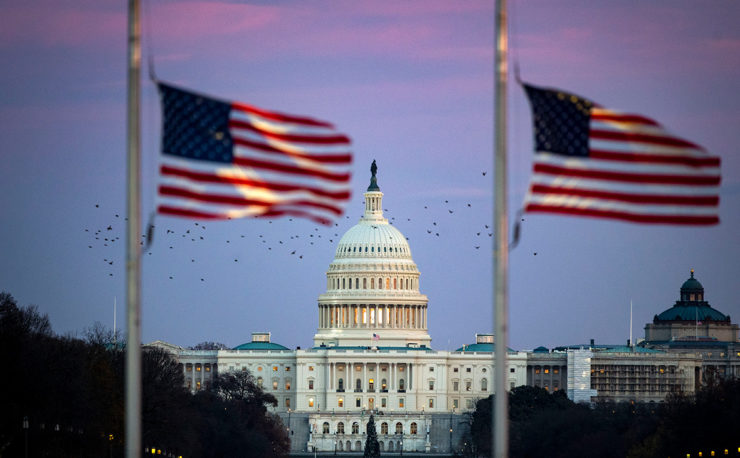
Recent events in the political life of the United States raise more and more questions about whether the authorities in Washington can function normally.
Passions in the American Congress have heated up over the adoption of the next budget: the national debt is huge. Three months ago, it amounted to 32 trillion dollars; now it has passed the mark of 33.5 trillion dollars (in one day the Americans increase their debt load by an amount equal to the entire national debt of Russia). This situation worries practically the whole world, especially considering America’s share in the world GDP.
American lawmakers were never able to come to a final agreement and actually postponed the issue until November 15. However, the situation now looks even more problematic, because the House of Representatives, the lower house of the American Congress, voted to vacate the Speaker from his post: in effect, this means that until a new Speaker is elected, the House will not function.
The New York Times, a newspaper loyal to the Democrats, called the resignation of the Speaker of the House of Representatives “another disorder in America’s political system.”
On October 6, the US press reported that markets were alarmed after the recent release of the jobs report: Wall Street’s reaction was most evident in the $25 trillion US Treasury bond market, where government bond yields have already risen sharply over the past couple of months. Investors are worried that the Federal Reserve will have to maintain higher interest rates for longer than expected to meet its goal of slowing inflation.
The Paris-based newspaper Le Monde saw this as a manifestation of an acute crisis in the US political system. It is noteworthy that a few days earlier, the leading US magazine Foreign Affairs had posted an article by former US Defense Secretary Robert Gates, which talks about the institutional dysfunction of the world’s leading power.
In this regard, it is noteworthy that almost all European publications have published articles expressing concern about the deep division in the United States: the main thesis is doubt in Washington’s reliability as an effective ally. At the same time, some observers directly write that there is a kind of offensive of Trumpists (supporters of President Trump). The former president himself offered to lead the House of Representatives for a period of time.
The American media is weighing the chances of various candidates for the Speaker’s post, and Trump supporters are favored.
In this connection, the thesis is played in different ways that the current American administration, which sharply criticized Trump for building a fence on the border between the US and Mexico – under the pressure of a huge flow of new illegal immigrants – had to return to Trump’s idea and complete the barriers on the border.
The press in some Arab countries carries the idea that the American establishment is sometimes disconnected from reality – it is so confident in its hegemony on the world stage that it simply does not want to see the formation of a new balance of power in the world. Inadequate assessment of the international situation will continue to lead to dramatic events.
According to a recent ABC poll, only 30 percent of voters approve of Biden’s approach to the economy and only 23 percent approve of his approach to immigration on the southern border. About three-quarters of American voters believe the 80-year-old Biden is too old to run for a second term. A number of polls have shown that an overwhelming majority in his own party do not want him to run again; in one 2022 poll, 94% of Democrats under 30 said they wanted a different candidate.
The political course of the United States is also being criticized in America itself, with the publication last month of a book by two prominent political scientists, Henry Burrell and Abraham Newman, titled Underground Empire: How America Weaponized the World Economy. The authors show how Washington uses a wide range of tools, primarily in the realm of economics, to intimidate the entire world: friends and foes alike. However, they conclude, “the weaponization of the global economy is proving to be an unreliable instrument of American power… The countries that have the most reason to fear the United States have responded by trying to create alternative mechanisms. Over the past year and a half, Russia has shown resilience in the face of full-scale economic warfare, which China and Iran are likely to use as a model. In contrast, those countries most friendly to the United States – Switzerland a decade ago, Germany today – have suffered because they have not protected their economies from US economic weapons.”
Under these conditions, the Western European allies of the United States do not hide their doubts about Washington’s ability to act: on the Continent there are more and more concerns about America’s financial support of the Ukrainian regime – the Europeans, as one French newspaper stated, “are afraid of being alone on the front line.”
The crisis of the US political system is worrying the whole world.
Veniamin Popov, Director of the “Center for Partnership of Civilizations” in MGIMO (U) MFA of Russia, Candidate of Historical Sciences, exclusively for the online magazine “New Eastern Outlook”.